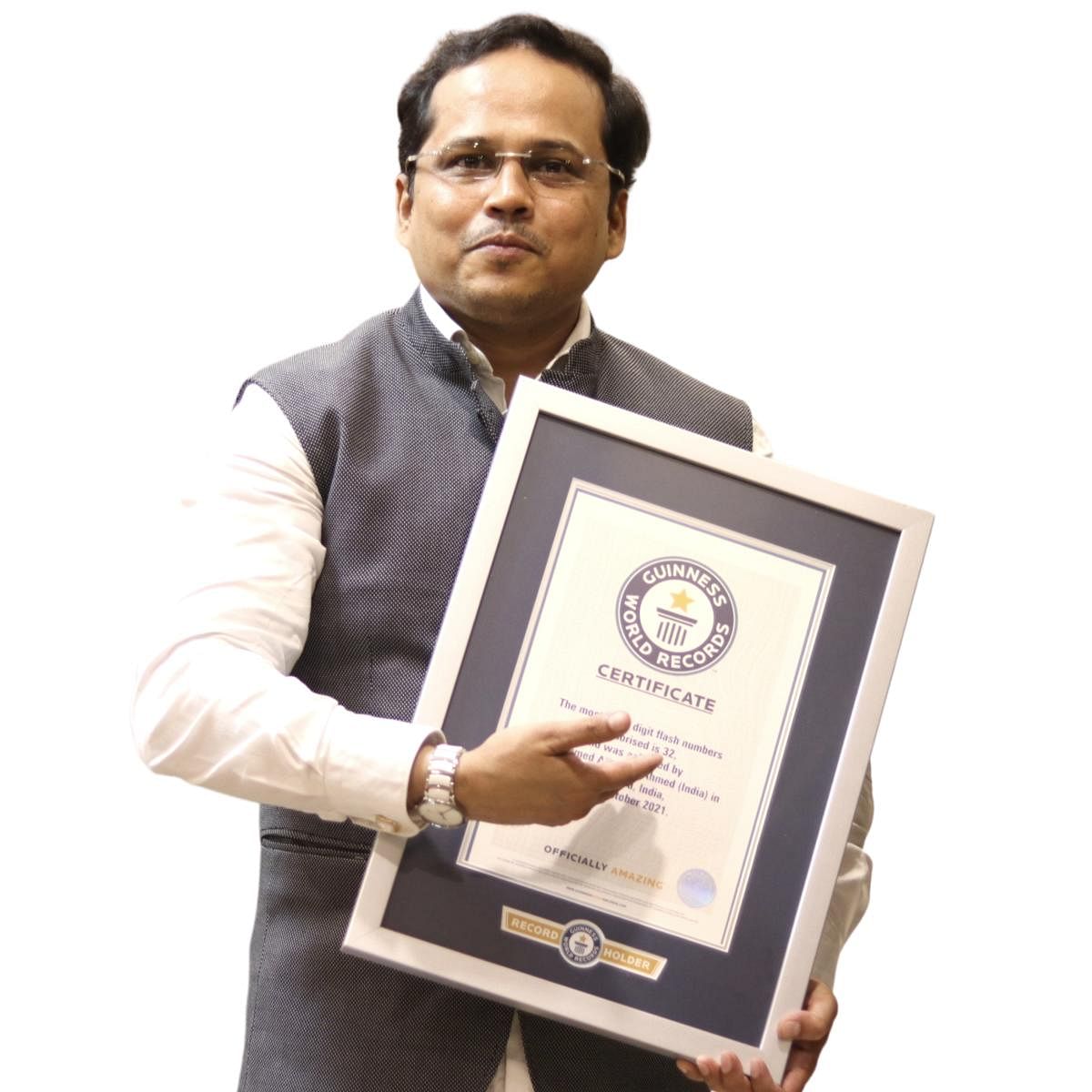
A 44-year-old Bengalurean has set a new Guinness world record in the field of accelerated learning.
MD Ahmed memorised 32 three-digit flash numbers projected on an electronic screen for a second each and recalled them correctly in the same order last October. With this, he beat the record of Morteza Javidahmadabadi of Iran, who had attempted the feat with 30 flash numbers in 2020.
Ahmed used the technique of accelerated learning, which he is an expert of. He is a chief inspiration officer at Fuel4success.com, a centre for research and training, and author of ‘Hidden Secrets of the Topper’s Mind’. “I always wanted to achieve something like this but never had the time to practise for hours. During the lockdowns, I found myself getting anxious and I realised I needed a goal and a grand one. The Guinness Records was more like a metaphor of triumph,” Ahmed says why he took up the challenge.
Training is far from easy, says the resident of Yelahanka. “I practiced for over three months. The last 30 days were intense like I was preparing for a mental athletics event,” he recalls.
Ahmed says school and colleges help us learn subjects but not strategically memorise and recall them. He says 80% of one’s achievements are psychological, 10% technical (skills like engineering or journalism), and 10% rely on systems like schooling and the resources they have. “Our society is conditioned to believe that the last 10% is the most important,” he adds.
What is accelerated learning?
It is a bunch of techniques that help one learn more in less time. It is different from memory techniques as it involves processing and understanding information and recalling them on demand. With a tool called ‘2 for tango’, Ahmed says you can process large topics like ‘Functions of a parliament’ by reading it once.
A good diet is as important to improve learning as getting rid of distractions, which can be done with neuro-linguistic training, he says.
An average 36 hours of training is required. It is a fairly new concept in India. Even abroad, it is mostly taught as a vocational course, he adds.